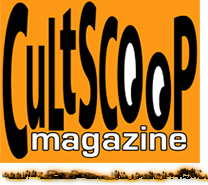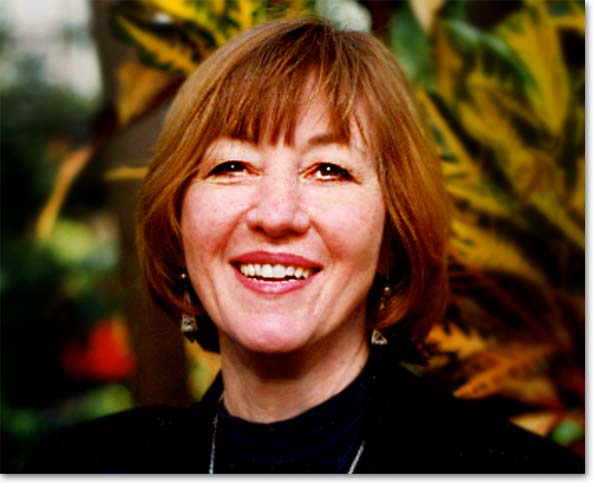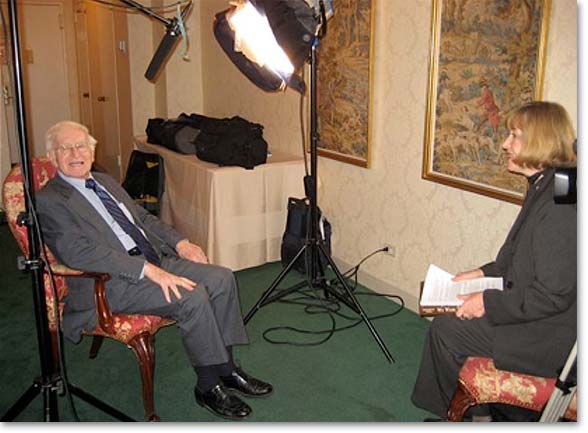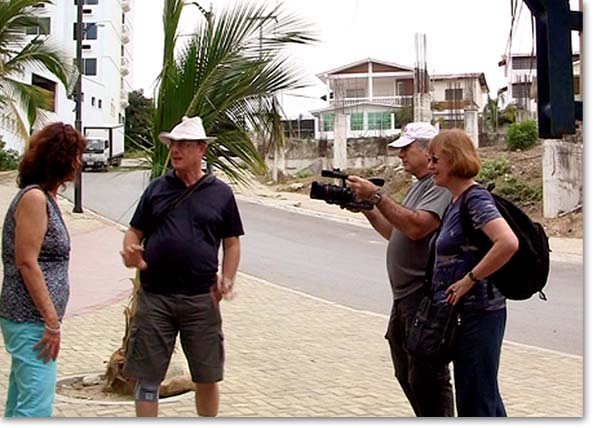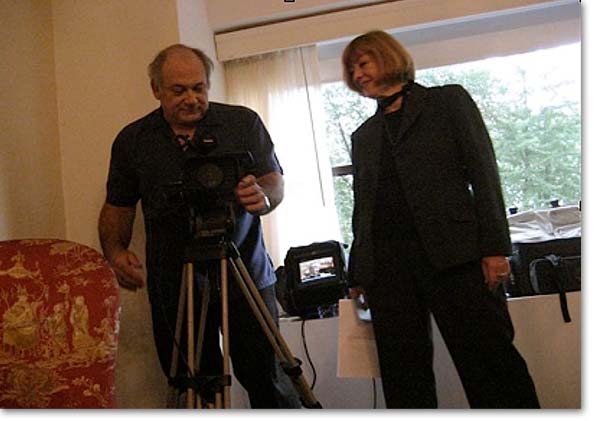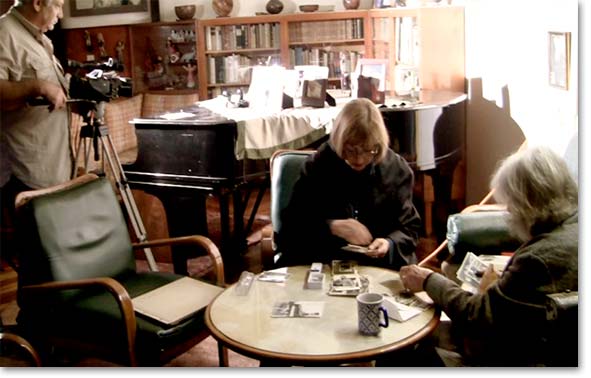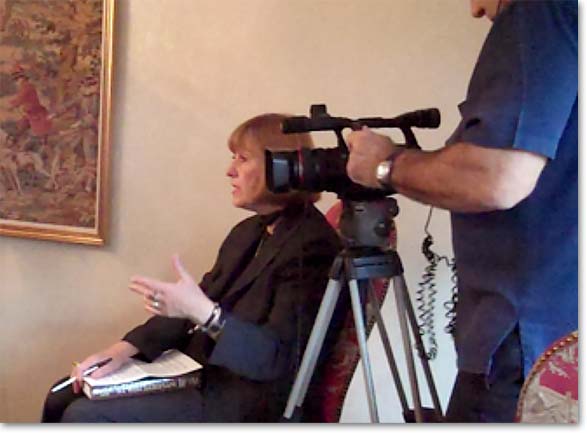|
||||||||||||||||||||||||||||||||||||||||||||||||||||||||||||||||||||||||||||||||||||||||||||||||||||||||||||||||||||||||||||||||||||||||||||||||||||||||||||||||
|
Eva Zelig: AN UNKNOWN COUNTRY is an independent film that tells the story of Jews who fled Europe, escaping the Nazi Terror to find refuge in an unfamiliar and exotic destination: Ecuador. Featuring first-hand accounts and archival material, the story will open a window on the exiles’ escape and difficult adjustment as they remade their lives in an unknown land. MM: That’s a fascinating story that’s never been told before. What drew you to it? EZ: My family was among those who found refuge in Ecuador. I was born there and always felt their heartache at having lost family and home, and their sense of not belonging to their adopted country. In 2010, I learned that a group of children of the refugees--some of whom I vaguely knew from childhood--was planning a reunion in Ecuador. While preparing to attend the reunion, I began to read accounts of some of the refugees’ experiences of how they managed to escape Europe and how they made new lives in Ecuador. As I read the stories, I saw a need to tell them to a wider audience and that’s when I decided to produce the documentary. MM: So you have a deep personal connection to the subject?
EZ: Yes, my family landed in Ecuador, escaping from Nazi occupied Czechoslovakia. Most of my relatives who stayed behind were killed by the Nazis. My family did not fare too well in exile, because of bad luck and difficulties in adapting to this new land. The cultural divide was too great, and they always felt like exiles. So I wanted to explore the issue of identity and find out how my family’s experience compared to those of other refugees. MM: Did your personal connection help or hinder you in filming the documentary? EZ: Neither. However, I was always torn about whether to make the project a personal account or remain an observer. Because of my experience as a TV producer telling other people’s stories, so far I have been an observer. I must add that even now, as I continue to work on the film, I am still deciding whether it will be a more personal statement. My personal connection did help in one regard: I was able to fully understand the context of the stories and empathize with the experiences people shared with me. MM: This film deals with two different cultures meeting, meshing and perhaps clashing. Is this a subject that particularly interests you?
Ecuador was not a country of immigrants like the U.S., Brazil, or Argentina; there was no tradition of absorbing outsiders in large numbers, so the refugees stood out. The local people, though friendly and welcoming, called all foreigners gringos--not just the Americans. Even the kids of refugees who were born in Ecuador were often called gringos. So, many did not feel they truly belonged in the country where they were born. That was my experience. We were a group apart and often identified with Europe more than with Ecuador. My interviews of both, refugees and their children confirmed this: They invariably described themselves as being “citizens of the world.” It’s also how I described myself. MM: Did the experience of filming the documentary change you in any way? EZ: It made me aware of how little I knew about the Jewish community of Ecuador. Because of my family’s difficult circumstances, we hardly participated in that community’s life. I hardly mingled with the kids who were children of refugees. At the time, it didn’t seem to matter. Today, I feel that had I fraternized with that group, I might have felt less estranged. MM: Were you surprised by anything you learned while filming?
Even more surprising was to learn that many of the exile families and individuals flourished. I was surprised by the extent of the refugees’ important contributions to Ecuador’s industry, economy, culture, and the arts. And I was impressed by how many exiles and their children expressed gratitude to Ecuador for providing a safe haven and by how many exiles loved Ecuador and never wanted to return to Europe. MM: What made you want to be a documentary filmmaker? EZ: From an early age, I wanted to be a journalist. I became a TV producer and enjoy the challenge and creativity of producing TV programs and films. I felt compelled to become an independent documentary filmmaker when a couple of years ago, I became fully aware of the complex and fascinating stories of the Jews in Ecuador. MM: What drives your creativity? EZ: The need to share stories. MM: Do you have any favorite directors that have especially inspired you? EZ: Ken Burns, Michael Moore, Albert and David Maysles, Werner Herzog. MM: What have been the biggest challenges in developing the project?
The record of persecution of Jews in Europe during the 30’s and 40’s is well documented, so this topic had become secondary to the saga of the refugees’ adaptation in Ecuador. I hope the film to be as much about the exile experience as about the country that offered them refuge. Another big challenge has been fund raising. For independent documentarians this is a continuous process that takes enormous time and effort. Often I spend more time fund raising than producing. Also challenging has been the process of hunting for archival images to illustrate the stories of the refugees. Some stories are fascinating, but without photos or footage, they cannot be properly told in a film. This is a challenging process that requires a great deal of time, persistence, and ingenuity.
MM: What do you hope viewers will take away from the film? EZ: I hope viewers will take away new knowledge of a little-known story that emerged from the Holocaust, and that they will learn about this small republic that opened its doors to the refugees. The film is as much about the exiles as it is about the country that offered them refuge when other countries closed their doors to them. I also hope viewers will take away a lesson in survival and perseverance as shown by this group of exiles who witnessed and endured one of the most harrowing periods of the 20th century. I hope viewers will be inspired by how the persecuted can conquer adversity, build new lives, and create a vibrant community in a faraway land vastly different from their own. MM: You’ve said this is a film about survival and perseverance. Is perseverance a virtue that you feel you possess or would like to attain?
MM: How is the production progressing? Do you have a timeline in mind for when you hope to release the film? EZ: Work on the documentary is progressing. However, fund-raising often requires that I stop production to apply for grants. That’s most time consuming. With the help of prior donors we are launching a campaign to raise finishing funds by mid-September. We finally have edited a rough cut of the intended film and hope to have a final cut by October of this year. If I meet that deadline, I could release the film at the end of 2013. MM: Thank you, Eva. We look forward to seeing AN UNKNOWN COUNTRY!
____________ AN UNKNOWN COUNTRY and EVA ZELIG on the web: _________________________________________________
About MAUREEN MCCABE:
Maureen McCabe has a Master’s Degree in English Literature from UC Riverside and is a graduate of USC’s Master of Professional Writing Program. She lives in Southern California with a very spoiled dachshund. |
||||||||||||||||||||||||||||||||||||||||||||||||||||||||||||||||||||||||||||||||||||||||||||||||||||||||||||||||||||||||||||||||||||||||||||||||||||||||||||||||
